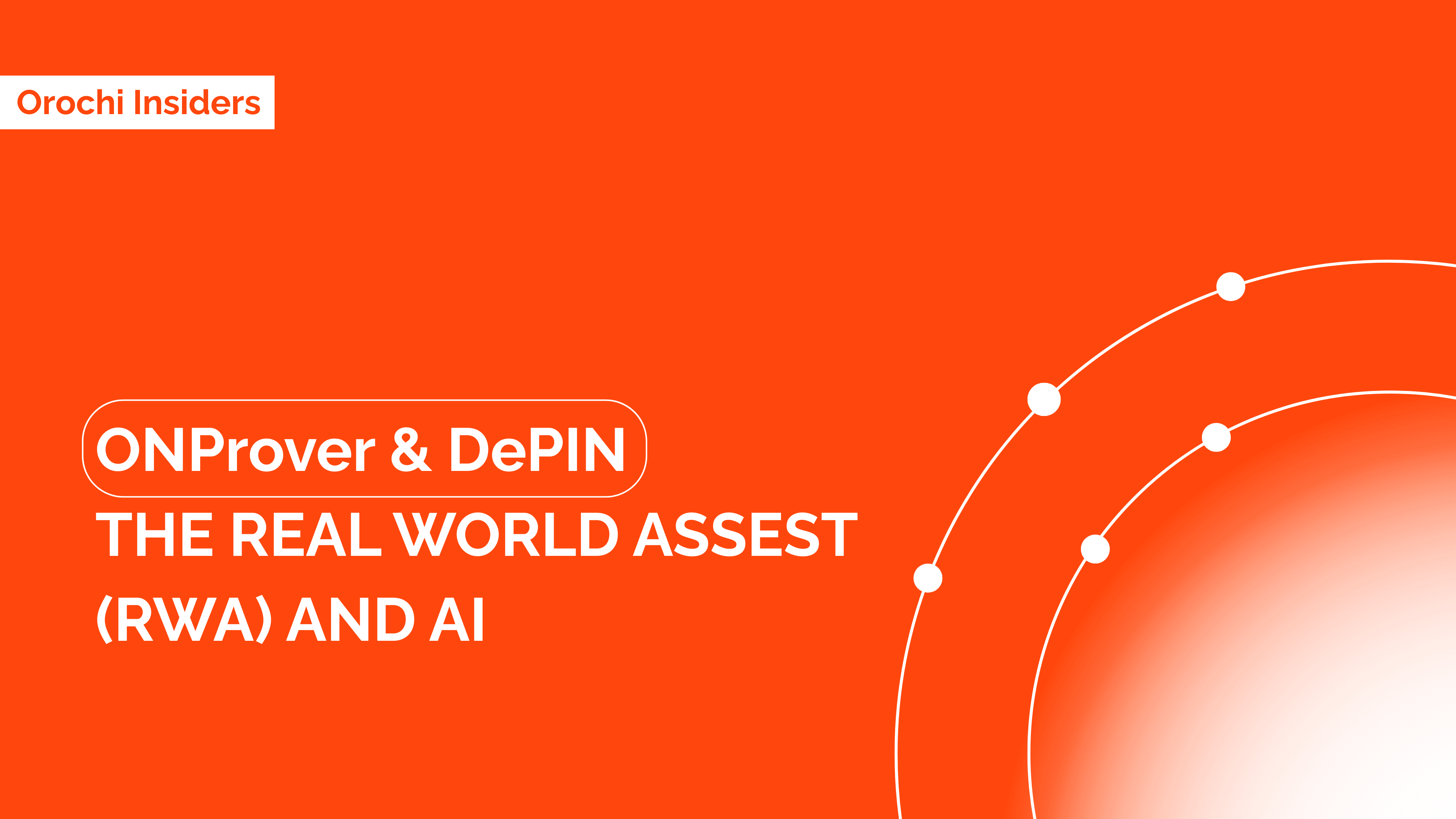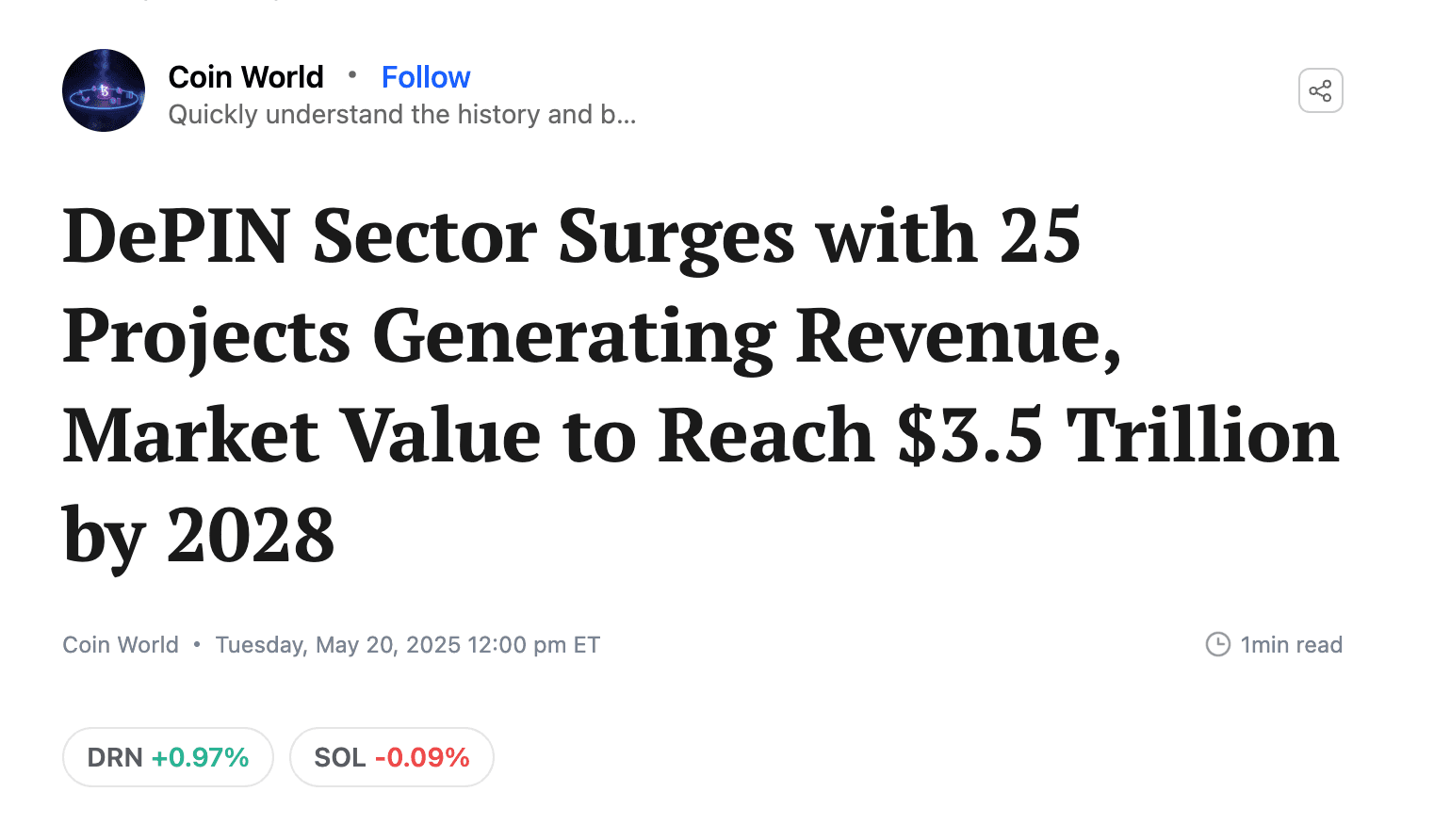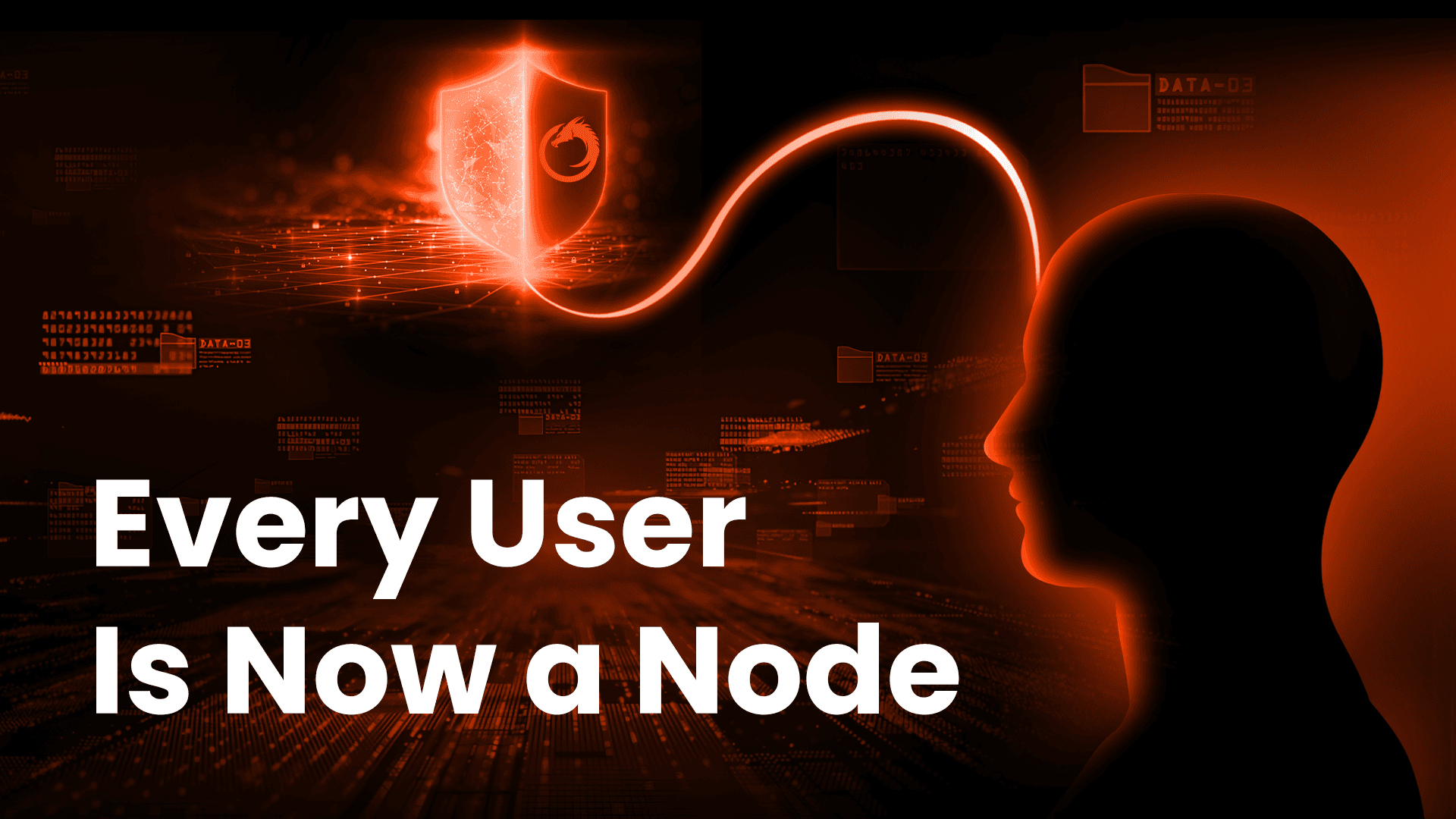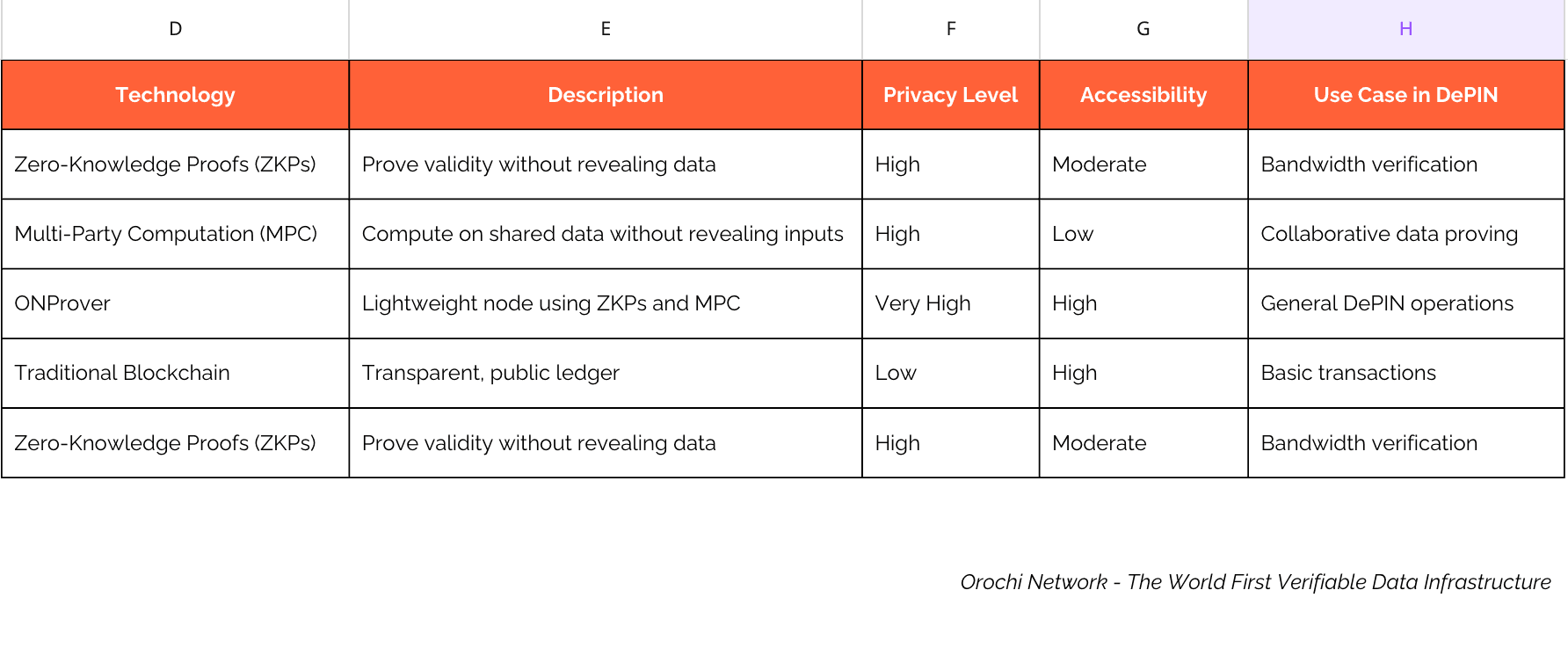
As the DePIN movement gains momentum across Web3, ONProver—developed by Orochi Network—emerges as a foundational layer for verifiable, privacy-preserving infrastructure.
More than just powering DePIN, ONProver is designed to support the next wave of decentralized systems, from tokenized Real-World Assets (RWA) to AI/ML-based decision-making engines, where data verifiability and confidentiality are critical. Built with Zero-Knowledge Proofs and running directly on personal devices, ONProver bridges trust and scalability across physical and digital domains, making it an essential enabler for future-facing applications in DePIN and beyond.
Background on DePIN
By early 2025, the Decentralized Physical Infrastructure Networks (DePIN) landscape had morphed into a multi‑billion-dollar ecosystem, with over $50 billion in market cap, 13 million devices active daily, and 25+ revenue-generating projects out of 80, per Messari’s Q1 2025 analysis. Backed by explosive startup funding—over $350 million in pre-seed to Series A rounds—and a 132% YOY market cap growth, DePIN now rivals both base-layer chains and DeFi in maturity.

Forecasts from Coin World and WEF see the sector reaching $3.5 trillion by 2028, driven by the convergence of decentralized networks with AI, or DePAI.
Yet as DePIN scales—powering wireless, energy, compute, IoT, and logistics—it also magnifies data risks: user location, energy usage, sensor data, and bandwidth patterns all carry privacy concerns. This is where ONProver, part of Orochi Network’s Verifiable Data Infrastructure, plays a critical role.
As a browser-native ZKP/MPC node, ONProver enables users to cryptographically prove contributions without revealing sensitive details, anchoring privacy in physical infrastructure operations.
This blend of analytics and cryptographic security positions ONProver not just as a DePIN enabler, but as foundational infrastructure for tokenized RWA, AI/ML computation, and broader Web3 use cases—offering a "proving layer" where scalable trust meets real-world systems .
The Privacy Challenge in DePIN
The decentralized nature of DePIN, while empowering, poses significant privacy risks. For instance, in a wireless DePIN network, users sharing bandwidth might inadvertently expose location data, while energy DePIN projects could reveal household consumption patterns. Traditional blockchain networks, often transparent by design, lack the granular privacy controls needed for such applications. This gap has led to increased demand for privacy-preserving technologies, ensuring data integrity without compromising confidentiality, especially as regulatory frameworks like GDPR and CCPA evolve.
ONProver - DePIN Project Is Changing
ONProver is as a lightweight node enabling users to verify data integrity directly from personal devices based on their laptops, without specialized hardware. It operates within web browsers, making it accessible to a broad audience. Orochi Network leverages advanced cryptographic techniques, including Zero-Knowledge Proofs (ZKPs) to create a Verifiable Data Infrastructure for Web3 applications, ensuring data privacy and decentralization.

Technical Mechanisms of Privacy Preservation
ONProver enhances privacy in DePIN operations through ZKPs, which allow users to prove the validity of data without revealing the underlying information. This is achieved by generating cryptographic proofs that verify claims. MPC further complements this by enabling multiple parties to compute functions on shared data without revealing individual inputs, ensuring collaborative verification without privacy breaches.
Integration with DePIN Projects
Verifiable Data Infrastructure —secures the entire data pipeline from off-chain collection to on-chain proof, all while preserving user privacy using browser-native ZKP and MPC capabilities. In decentralized energy grids, users can cryptographically prove energy contributions without revealing usage patterns; in IoT / smart city cases, device sensor data is validated without exposing identifiers.
ONProver enables tokenized assets—like solar panels or telecom equipment—to be mintable only after verifying operational data on-chain, making asset performance "provable" and not just assumed. This trusted proving layer also supports
Ensuring model outputs or data inputs are verifiable without leaking proprietary logic—essential infrastructure for scalable, privacy-preserving Web3 innovation.
Reading more

DePIN 2025 - Trends and Projections
DePIN is poised for significant growth, with privacy-preserving technologies like ONProver becoming standard. Underscores DePIN’s potential to democratize infrastructure, emphasizing the role of verification in ensuring trust. ONProver’s accessibility, requiring only a browser, aligns with DePIN’s community-driven model, likely driving wider adoption.
Regulatory pressures, such as GDPR and CCPA, further necessitate privacy solutions, with ONProver’s ZKP and MPC capabilities ensuring compliance. Emerging sectors, like healthcare and finance, are expected to adopt DePIN, using ONProver to verify medical or financial data without exposing sensitive details.
Comparative Analysis of Privacy Technologies
To illustrate ONProver’s position, consider the following table comparing privacy-preserving technologies in DePIN:

Highlights ONProver’s superior privacy and accessibility, making it ideal for DePIN’s diverse applications.
Conclusion
ONProver, within Orochi Network's Verifiable Data Infrastructure, builds a fresh proving layer that is private and scalable, vital to the next generation of decentralized systems. Throughout the quickly growing DePIN ecosystem, it enables users to cryptographically prove contributions (from energy to sensor data) without revealing sensitive data.
Not only does this protect user privacy build also boosts confidence in tokenized Real‑World Assets (RWA) and AI/ML applications. By mapping real-world action to on-chain proof independent of intermediary trust, ONProver converts "assumed" execution to "provable" fact.




